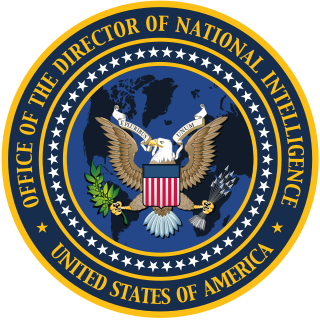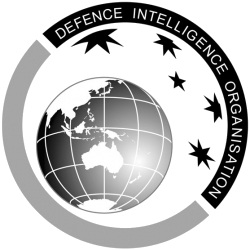| Agency overview | |
|---|---|
| Formed | 20 December 2018 |
| Preceding agency |
|
| Jurisdiction | Commonwealth of Australia |
| Headquarters | Robert Marsden Hope Building, Canberra, Australian Capital Territory, Australia |
| Minister responsible |
|
| Agency executive |
|
| Parent agency | Department of the Prime Minister and Cabinet |
The Office of National Intelligence (ONI) is an Australian statutory intelligence agency responsible for advising the Prime Minister and National Security Committee, the production of all-source intelligence assessments, and the strategic development and enterprise management of the National Intelligence Community. [1] [2] [3] The ONI is directly accountable to the Prime Minister of Australia as a portfolio agency of the Department of the Prime Minister and Cabinet.

The National Security Committee of Cabinet (NSC) is the peak decision-making body for national security of the Commonwealth of Australia. It is a committee of the Australian Government Cabinet of Ministers though decisions of the NSC do not require the endorsement of the Cabinet.
The Australian Intelligence Community (AIC) and the National Intelligence Community (NIC) or National Security Community of the Australian Government are the collectives of statutory intelligence agencies, policy departments, and other government agencies concerned with protecting and advancing the national security and national interests of the Commonwealth of Australia. The intelligence and security agencies of the Australian Government have evolved since the Second World War and the Cold War and saw transformation and expansion during the Global War on Terrorism with military deployments in Afghanistan, Iraq and against ISIS in Syria. Key international and national security issues for the Australian Intelligence Community include terrorism and violent extremism, cybersecurity, transnational crime, the rise of China, and Pacific regional security.

The Prime Minister of Australia is the head of government of Australia. The individual who holds the office is the most senior Minister of State, the leader of the Federal Cabinet. The Prime Minister also has the responsibility of administering the Department of the Prime Minister and Cabinet, and is the chair of the National Security Committee and the Council of Australian Governments. The office of Prime Minister is not mentioned in the Constitution of Australia but exists through Westminster political convention. The individual who holds the office is commissioned by the Governor-General of Australia and at the Governor-General's pleasure subject to the Constitution of Australia and constitutional conventions.
Contents
ONI is the Australian equivalent of the United States Office of the Director of National Intelligence and the United Kingdom Joint Intelligence Committee.

The Director of National Intelligence (DNI) is the United States government Cabinet-level official—subject to the authority, direction, and control of the President of the United States—required by the Intelligence Reform and Terrorism Prevention Act of 2004 to:

The Joint Intelligence Committee (JIC) is an interagency deliberative body responsible for intelligence assessment, coordination and oversight of the Secret Intelligence Service, Security Service, GCHQ and Defence Intelligence. The JIC is supported by the Joint Intelligence Organisation under the Cabinet Office.






